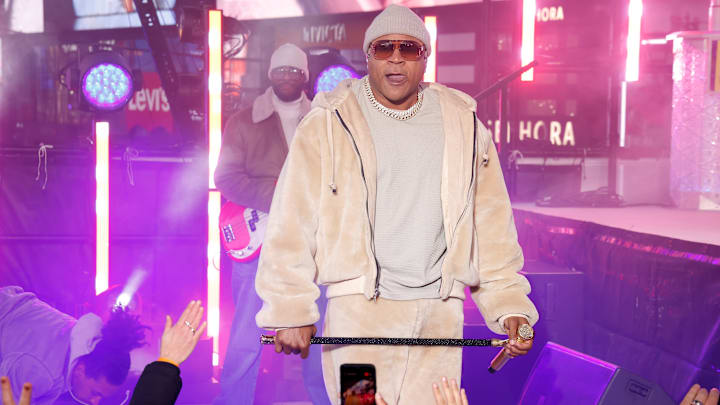LL COOL J, the iconic rapper and actor, has taken a candid look back at his illustrious career, revealing that he’s not immune to making “bad albums.” In a recent conversation on LeBron James’ show, The Shop, LL discussed his discography and shared insights into his creative process.
"I make bad albums, LL Cool J admitted, but I also have some smack, some crazy sh*t too. But I made bad sh*t, or sh*t that people didn’t respond to because that was where I was at. His honesty is refreshing, acknowledging that not every project resonated with fans. “Not always"
" He continued, I’m a little bit of a weirdo, B. Sometimes I make records in a vacuum just because it’s for me, and then sometimes I make albums for the culture. I’m very different in that regard, so you can’t really gauge my albums like that 'cause I don’t make all my records for the culture."
André 3000, the enigmatic half of the legendary duo OutKast, faced a similar situation with his debut solo album, New Blue Sun. The entirely instrumental project showcased André’s woodwind skills, a departure from traditional rap. Fans had varying reactions, with some disappointed by the absence of bars. Despite the 17-year wait since his last full-length release, André remained unapologetic.
"Even on the artwork it says, ‘No bars,’ so if you’re disappointed, man, I don’t know what else I could do, he expressed during an interview. “I don’t like that people are upset a little bit about it. If I were waiting for a thing for 17 years, a certain thing that I’m looking for and something else shows up, I’d probably be upset too."
LL COOL J empathizes with André’s artistic evolution.
"Maybe that’s what André was doing with the flute thing, he theorized. I can understand it from that point of view. He just expressed it differently."
LL’s openness and understanding highlight the complexities of creativity and the need for artists to explore beyond expectations.
In summary, LL COOL J’s admission of “bad albums” and his connection with André 3000’s unconventional musical journey remind us that even legends face artistic challenges. Their willingness to push boundaries contributes to the rich tapestry of hip-hop history.
